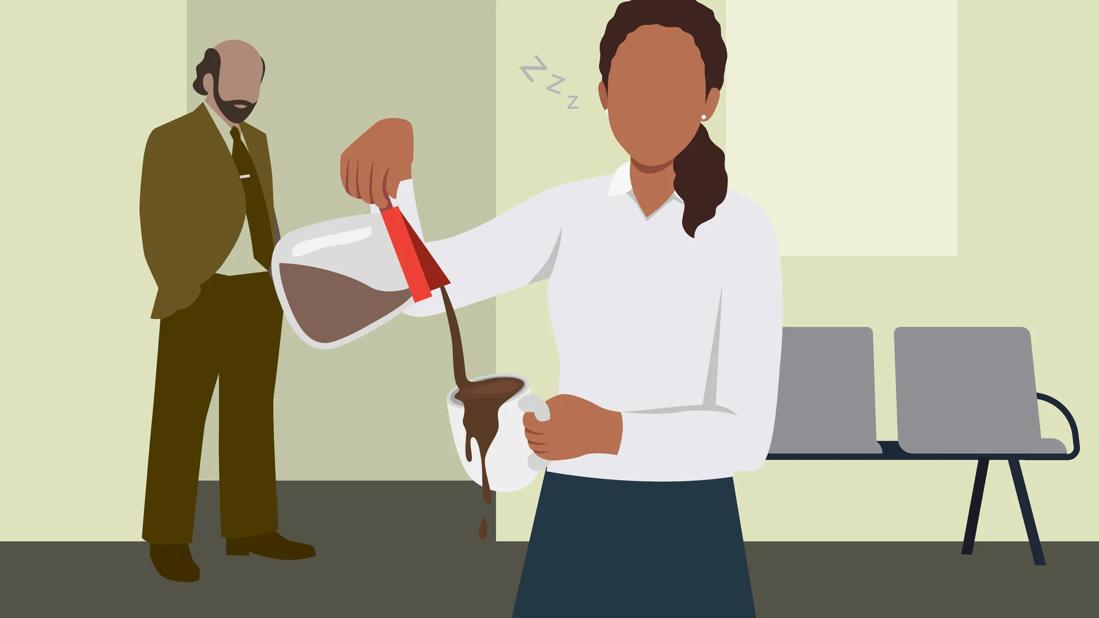Overworked? Here’s How It Can Affect Your Health
Working beyond your limits can increase illnesses and accidents related to your physical and mental well-being

Research suggests working more than 55 hours a week can have negative effects on your health — and it’s no wonder. When we sacrifice our health and personal responsibilities for overworking, we give up more than just our time and energy. Our relationships can become strained, our mental health can falter and our bodies can become overwhelmed with stress.
Psychologist Adam Borland, PsyD, talks about the warning signs of overworking and why it takes such a toll on your body.
What does it mean to be overworked?
Overworked describes the experience of working beyond your limits. You work too hard, too long and too often. As a result, you experience physical and mental harm that can lead to burnout and exhaustion.
Overworking is subjective. That means you can experience it in a number of different ways.
For full-time employees, overworking could mean you work well beyond what you signed on to do or what is expected of you. As a result, you might sacrifice evenings and weekends to complete your job.
For others, like part-time workers, shift workers and people working multiple jobs, overworking could mean you’re taking on too much responsibility and it’s taking a toll on your overall health.
You can also be overworked at school or home if your mental and physical investment in these areas is beyond what’s healthy for you.
“It’s important to try to maintain a healthy life-work balance. But this is often easier said than done,” recognizes Dr. Borland. “If your work demands are negatively affecting your life, both in and out of your job setting, you may need to evaluate why it’s happening and what changes can be made.”
Signs you might be overworked
An unhealthy work-life balance hits people in a number of ways. If you’re sacrificing self-care, time off and other responsibilities you have to your personal health to make way for overworking, you could notice the following signs:
- Increased stress and anxiety
- Lack of motivation or interest in the activities you enjoy at work and at home
- Burnout
- Low productivity
- Strained relationships, both personal and professional
- Trouble bonding with others
- Issues leaving work and work-based stress behind
- Trouble sleeping
- Constant fatigue
“There may be an expectation of doing more with less, which may result in employees experiencing increased stress, anxiety, pressure and the potential for burnout,” says Dr. Borland.
Health effects of overworking
When you’re overworked, you push your mind and body past its limits. Working too hard for too long can negatively impact your physical and mental health. As a result, you may experience increased risk of:
- Frequent infections and illness
- Weakened immune system
- Mental health issues, like depression
- Cognitive impairments, like brain fog
- Cardiovascular issues, like high blood pressure or heart palpitations
- Sleep disorders
- Changes in weight, appetite and eating habits
- Injuries and accidents
- Alcohol and substance misuse
“A car doesn’t perform optimally when its gas tank is on empty,” illustrates Dr. Borland. “In the same way, our health becomes compromised when our physical and emotional reserves are tapped out.”
When to seek help
If things aren’t improving after you try to establish healthy boundaries and make room for self-care, you may be dealing with a toxic work environment. In these cases, it can help to work with a therapist or behavioral health coach who can guide you on how to manage these conflicts.
In therapy, you can learn how to find healthy solutions when your workload becomes overwhelming. You might even find workarounds for some of the most menial tasks.
“It’s not uncommon for self-care to be misconstrued as selfish,” understands Dr. Borland. “We need to adjust that type of mindset. I encourage my patients to carve out time for self-care each and every day, with the goal of prioritizing emotional and physical well-being.”